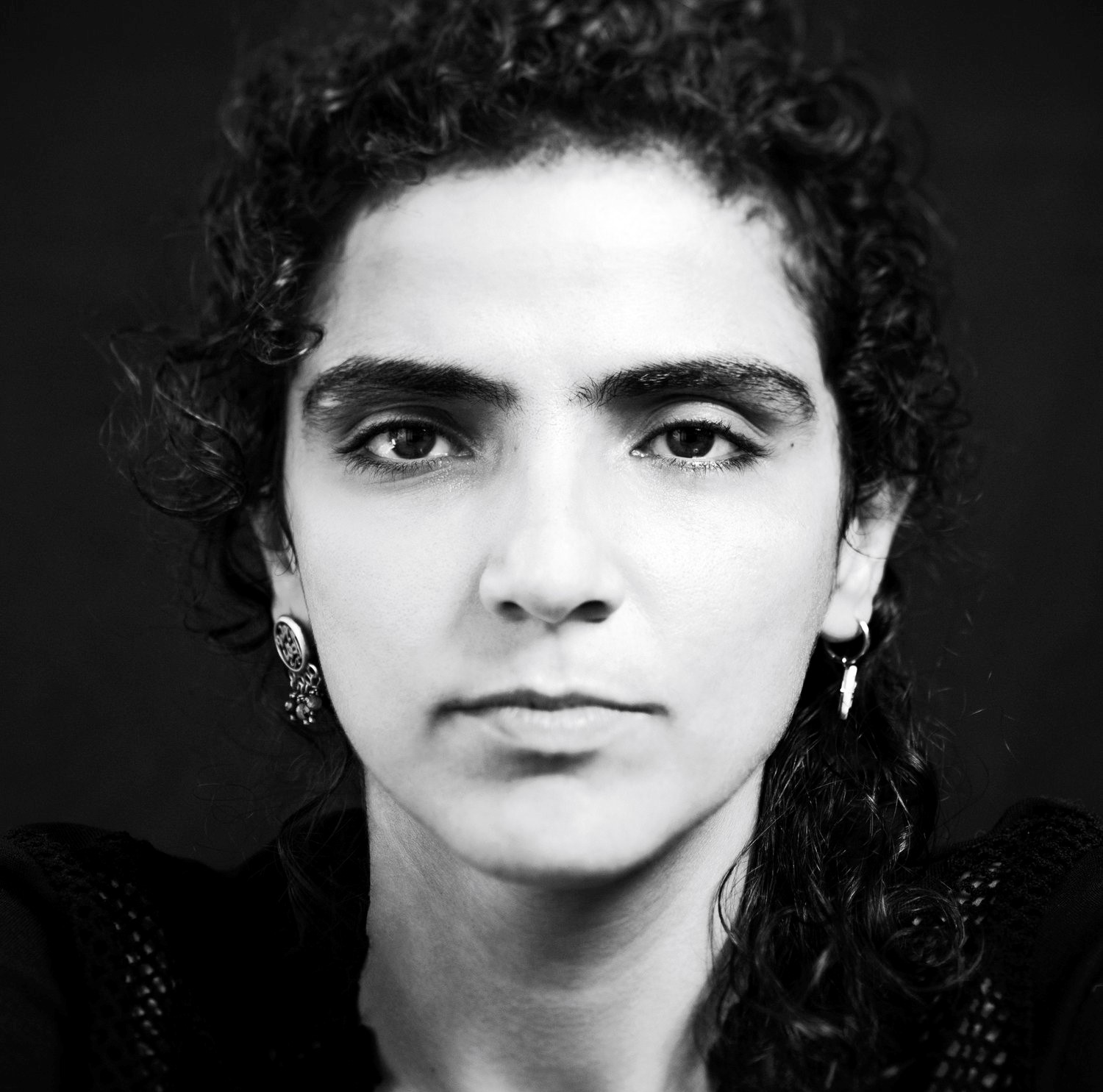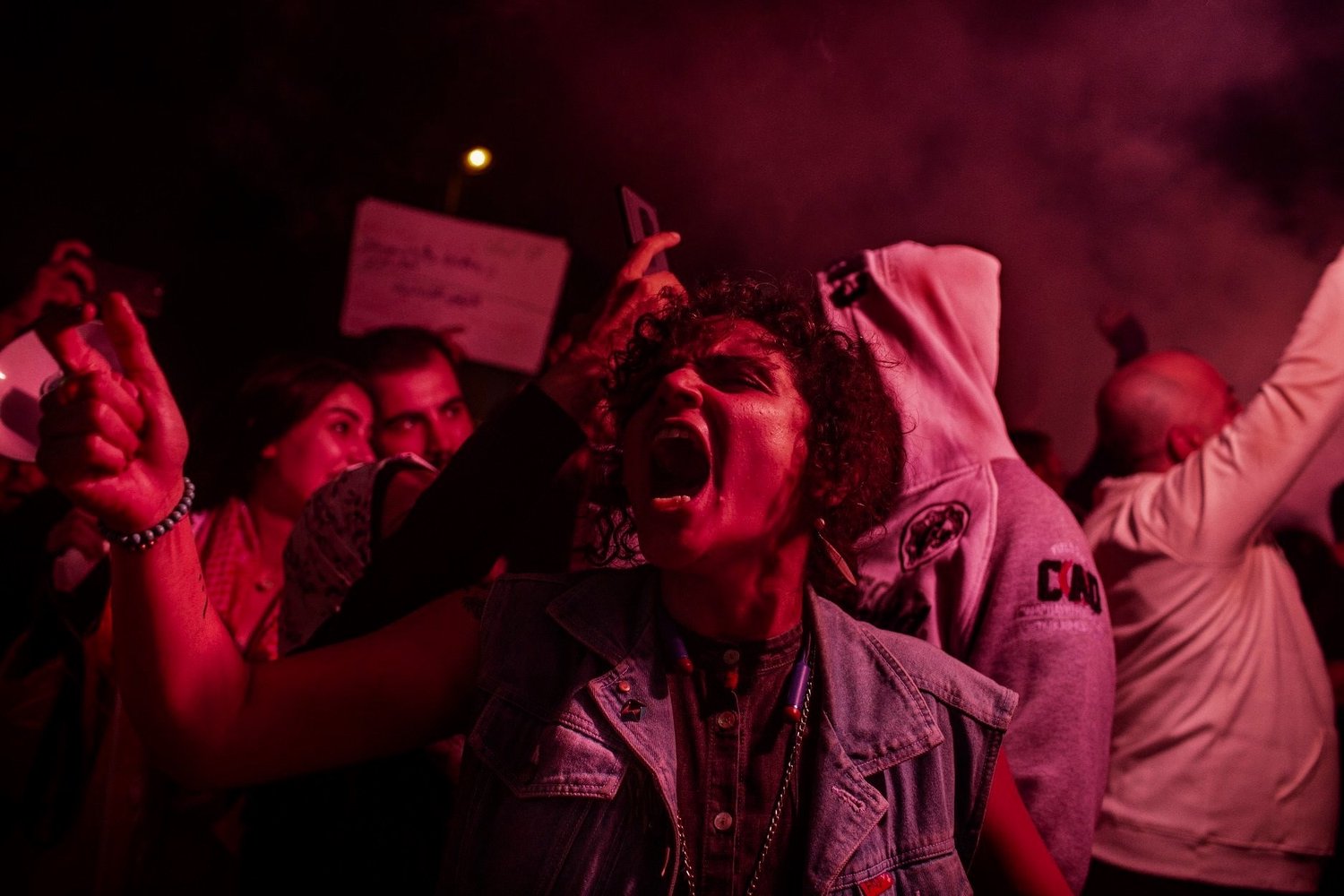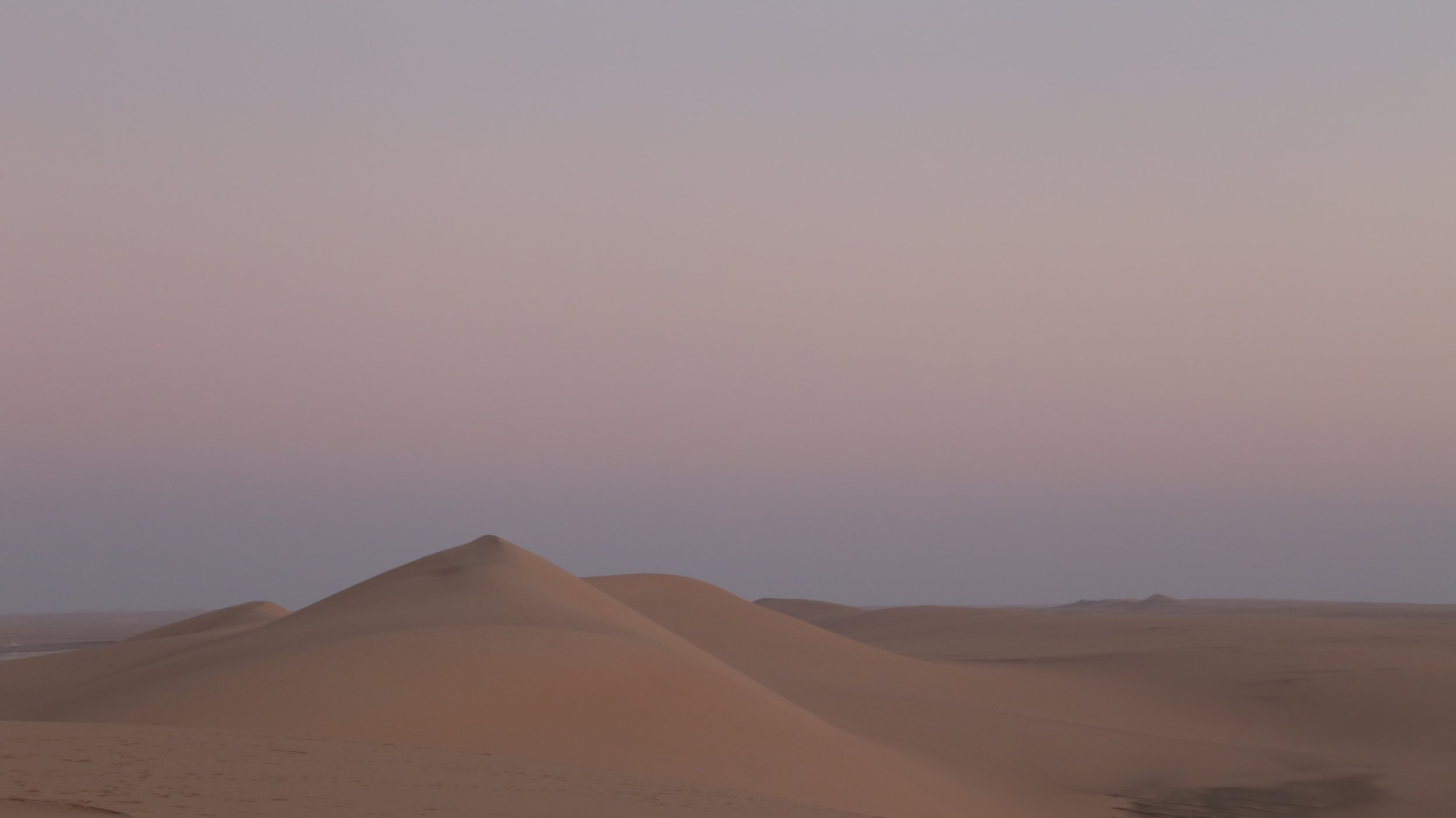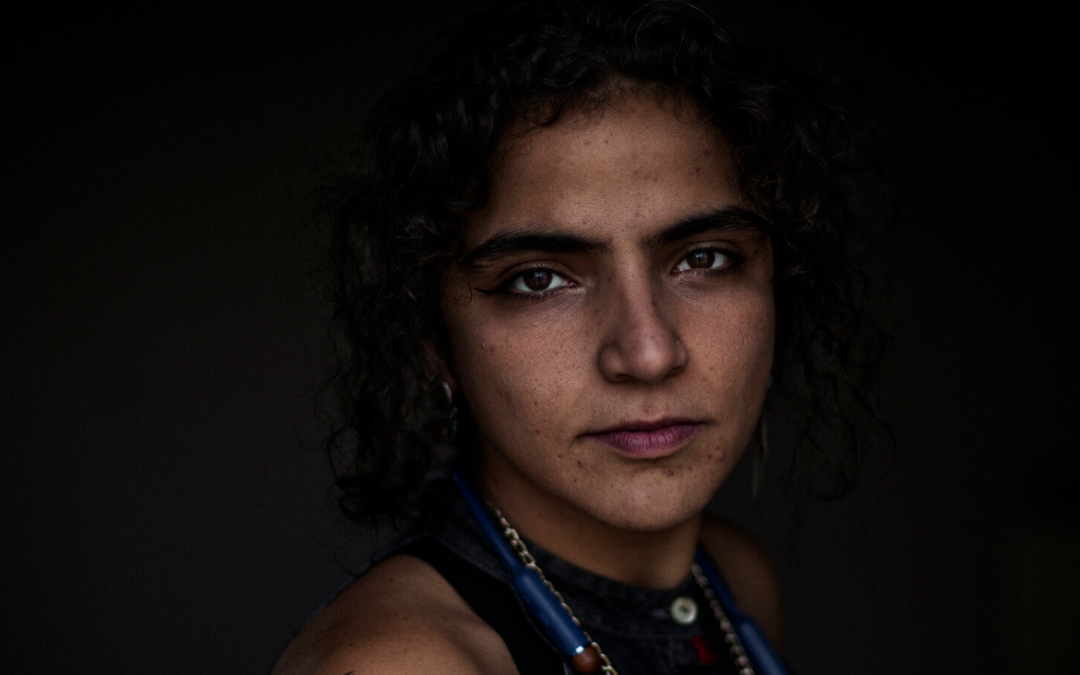Perla Joe Maalouly
Filmmaker
Lebanon

Every morning in October 2019, during the early days of the anti-government protests in Lebanon, artist and activist Perla Joe Maalouli would make her way to the heart of the protests downtown. Armed solely with a metal pot to bang and her powerful cries, Perla Joe had emerged as one of the leading voices of the Thawra (Arabic for revolution) against the corrupt sectarian government which had been harming the Lebanese people for decades.
The country’s population of 4 million was under economic and political duress, including Perla Joe’s own family. When the revolution broke out, her father was struggling to make a living as a part-time municipal security guard and her mother, who had cancer, could not depend on the government to provide her with healthcare. Desperate for change, Perla Joe joined the crowd of both Christians and Muslims, who had once fought against each other in Lebanon’s bloody civil war from 1975-1990, to demand that the government officials step down and stop the violence against the people of Lebanon.
Perla Joe was born in Beirut in 1992, just two years after the civil war ended. Her father had fought for the Christian militias in the civil war, and growing up, Perla Joe was warned she should never bring any Muslim friends home. As a child, Perla Joe was best able to express herself through writing, composing music, and singing, the last of which was a love fostered with her grandmother. The two would sing to one another, in protest of the conventions that did not allow her grandmother to sing when she was a young woman growing up in Lebanon. Perla Joe later decided to study a bachelor’s and master’s degree in Audiovisual Art and Filmmaking, mixing her passions for art and storytelling.
During university, she worked on a number of music videos, short films and digital advertisements. Her short film Zugzwang, a satire about a Lebanese woman’s subconscious journey during a casting session, won the Editing Award at the 2018 Yale Student Festival and it has since been screened at other events, such as the Beirut International Women Film Festival and Berlin Revolution Festival. Perla Joe had acted as a casting director and she was often inspired to produce works about her own life experiences. She also spent two years traveling between Egypt and Lebanon and working on her album “Kello Helo,” a soulful and collaborative music piece inspired by the natural world. When she returned permanently to Lebanon, Perla Joe organized a live debut concert for the album with accompanying musicians traveling from Syria, Palestine, Kuwait, Egypt, and Spain.
However, the concert never took place – instead, a historic revolution swept her country, changing her life and countless lives around her.
Perla Joe writes about this moment in her artist portfolio: “We had booked the venue, Station Beirut, prepared and gathered our capacity to launch. Interrupted by the Revolution, the Beirut Blast, the pandemic and the failure of economy, I remember the week I had to record my final vocal recording was the week that I dislocated my jaw screaming my lungs out on the streets of Beirut.”

Photograph by Diego Ibarra Sanchez
Instead of singing in a venue, Perla Joe brought her voice and music to the streets in protest, drawing on her power as an “artivist.” When the revolution began, Perla Joe spent all of her time on the street, preventing violent clashes from breaking out in the crowd and starting chants and songs. She created a song made from poetry and chanting called “The Mandate” (Wujud Al Ahed). Protesters were empowered by the lyrics: the “la la la la la la ” meant “no no no no no no” to Lebanon’s frustrating reality. “The Mandate” was later recorded and used in the soundtrack of the Emmy award nominated short film series Beirut 6:07.
Her song “My Land is Calling” also originated in the aftermath of the revolutionary protests and it later went on to be featured in the Beirut & Beyond Music Support Program, Oslo World, Scene, and Théâtre de la Ville, and the album Beirut 20/21 (which was produced in collaboration with twenty other Beirut-based artists after the Beirut explosion). While it felt like her native land was crumbling under the government’s neglect, Perla Joe wrote a song about the natural beauty of Lebanon. “My Land is Calling” is an anthem for peace, wellness, and nature—evoking the moon rising from the mountains and clouds forming across the sky. Like her other work, it centers around Wujud (existence) and the radiation of energy and empowerment. She was specifically inspired by women’s liberation, and the song describes women being able to smile and dance with no shame.

Photograph by Perla Joe Maalouly
Perla Joe’s presence as a woman on the frontlines of the protest helped to quell the male violence around her, but it has also made her especially vulnerable to harassment. She regularly received jeers from men, joking about her masculine appearance and size of her breasts – though the unwanted attention paled in comparison to the physical violence that the Lebanese army inflicted upon the protesters, including Perla Joe, who were sprayed with tear gas and shot at with rubber bullets. Several protesters lost eyes, and some suffered memory loss from being beaten on the head. Perla Joe said about these tactics, “Intimidation has made me question my limits and made me understand how sacred it is to maintain freedom of expression, preferably through art, on a humane level rather than politics, loops of mud, and accusations.”
The revolution came to a head following August 4, 2022 when a large amount of ammonium nitrate stored at the Port of Beirut exploded, causing at least 218 deaths. The “Beirut Blast,” as it came to be known, was the final straw of the series of injustices enacted by Lebanon’s government who had known about the presence of the hazardous material for nearly six years and had done nothing to address it. When asked by Vogue why the Lebanese government neglected these explosives for so many years, Perla Joe responded, “Negligence, this is what happened. Negligence to our people to our land to our spirits to our future.”
As a way to channel her pain, Perla Joe wrote the song, “Corrupted Matter,” about the Beirut Blast, and released it on the first anniversary of the tragedy to commemorate the victims. The lyrics read:
May they be cursed
Those who have cursed my land
They are trembling
As the sheep comes out free
As they multiply
A martyr dies in vain
And the victims and the nation go up in flames
Perla Joe then transformed the song into a collective and immersive experience, inviting friends and acquaintances to listen to the song in a safe and quiet room. She recorded the cycles of emotions her listeners experienced while hearing the song for the first time and combined it with interpretive dance in a powerful music video. The final result is a testament to Perla Joe’s sensitivity as an artist and her ability to heal others through her work, making them feel less alone.
Perla Joe has since been able to continue expanding and sharing her creative projects, taking her work internationally. She has completed an artist residency at Château de Goutelas in France, where she combined a music and poetry into a moving short film titled Existence | bla bla bla. The work exemplifies Perla Joe’s ability to weave together all that encompasses life in Beirut: intimate moments between strangers and friends, the rich natural world, and footage from the frontlines of protests.
In June 2022, Perla Joe relocated to New York. She has continued to educate and inspire audiences around the world, from leading an atelier in movement and creative expression in Martinique to creating an audio-phonic thematic installation in Switzerland.
As Perla Joe settles down in Brooklyn and learns to navigate the different pace of life, work, and culture in the United States, the city she left behind is never far from her mind. On August 2, 2022, she took to the streets in Manhattan outside of the Consulate General of Lebanon to remember the victims of the explosion and call for justice to be served.
“Help us deliver the call!” She writes on her social media, “We hit the streets again, and we mourn together.”
By Rose Bialer, December 2022. Rose is pursuing a Mphil. in Comparative Literature from Trinity College Dublin. She holds a BA in Spanish and Sociology from Kenyon College.






